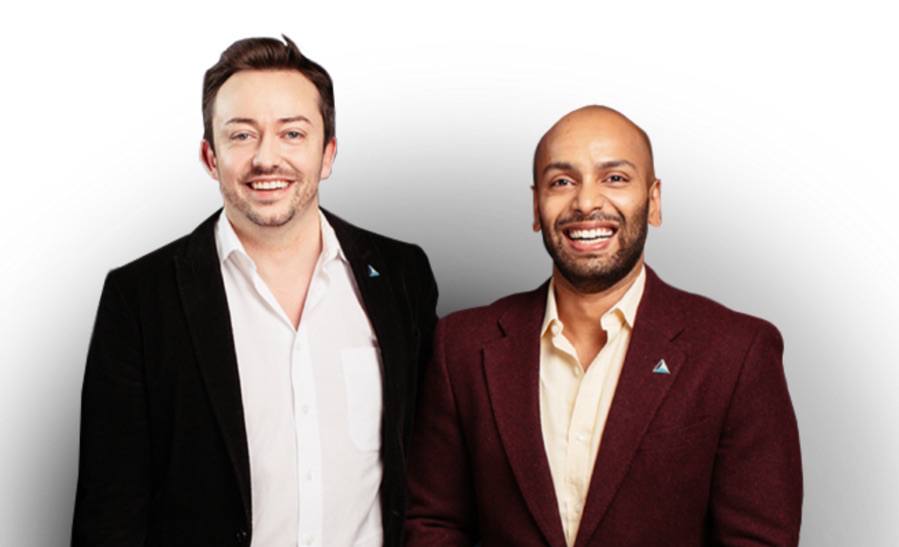
Photo credit: Pexels.
Whether it is artificial intelligence or targeted advertising, it’s the quality of data that determines how smart the results will be. Berlin-based Zeotap, which also has a joint venture in Bangalore, zeroed in on this aspect from the very outset of its adtech business in late 2014. It started tying up with telecom companies across Europe and Asia to use their customer data for targeting mobile ads.
Today it has partnerships not only with major telecom companies but also a leading security company and a navigation services provider for their user data. What makes large corporations such as these comfortable in sharing their user data with Zeotap is its leak-proof systems to protect the privacy of consumers, under strict European norms. It has already been certified for the new EU General Data Protection Regulation (GDPR) that comes into effect next year.
“Our unrelenting focus on privacy by design principles in systems engineering is one of our most formidable assets,” says Projjol Banerjea, co-founder and CPO of Zeotap.
Investors agree. Zeotap today announced US$12.75 million in series B funding from US-based New Science Ventures and Here, a provider of mapping and location-based services backed by German auto companies.
Existing investors Capnamic Ventures and Iris Capital also participated in the new round.
Mobile advertising accounted for more than half of the US$195 billion digital ad spend in 2016.
“Their solution comes at a time when many data owners are looking for the right partner,” says Edzard Overbeek, CEO of Here.
Zeotap will use the funding to grow its engineering and data science team in Bangalore and expand into new markets for partnerships with data owners. It formed a joint venture called Mozeo in partnership with Mogae Media in India a few months ago.
Mobile advertising accounted for more than half of the US$195 billion digital ad spend in 2016, according to eMarketer. There’s also a growing shift towards programmatic advertising. This is an automated process of buying and selling digital ad inventory, instead of the manual negotiation and insertion of ads.
The main hitch lies in the lack of reliable large-scale data. “Programmatic advertising hasn’t picked up pace in India yet, especially on mobile, even though consumer eyeballs continue to move to mobile,” points out Sandeep Goyal, chairman of Mogae Media. “The fundamental reason is the scarcity of trustworthy data for targeting. This leads to imprecise and ineffective campaigns that disappoint buyers and curtail their appetite for programmatic advertising.”
This is the gap Zeotap is filling with its access to telecom user data. Three of India’s largest telecom operators are among its clients. “India is an important market for us where we’ve established the benefits of a cross-carrier model with multiple operators,” Projjol tells Tech in Asia. “We have coverage of over 60 percent of the market currently.”
The value proposition for Zeotap is the quality of telecom data which has specifics on the user’s age, sex, location, income level, and more. This is richer than the user data mobile advertisers have to work with otherwise.
See: User data superior to Facebook, Google: one startup’s recipe to dominate mobile ads
As Projjol explained to Tech in Asia in an earlier interview, “The data with telcos is deterministic (as opposed to probabilistic modelling techniques used by almost all current data providers), longitudinal (they have the full picture of a user), and scalable (their subscriber bases are in the hundreds of millions).”
Zeotap hides or encrypts personally identifiable data with its technology developed in Germany, which has strict user privacy regulations. This means that advertisers cannot personally identify the telecom users. At the same time, they can accurately target users of a certain age, sex, location, income, and so on.
Another advantage in this for advertisers, points out Projjol, is that they are more likely to target and get responses from real users instead of bots. “We’re focussed on people-based rather than property-based marketing,” he adds. “Each profile in our database corresponds with an actual telecom customer.”

Zeotap founders Daniel Heer and Projjol Banerjea. Photo credit: Zeotap.
Zeotap is not the only adtech company out of Berlin that’s making inroads in Asia. Another Berlin-based company, Glispa, counts Flipkart and Alibaba among its clients for products on native ad placement and user engagement. A third major player is AppLift, which acquired Indian startup Bidstalk to add programmatic advertising muscle to its marketing of apps and games.
“When I first moved to Berlin in 2010 to join Fyber (at the time SponsorPay) as a very early employee, the ecosystem was still in its infancy,” recounts Projjol. “What’s happened since then is the growth and successful exit of a number of major ad tech players such as Fyber, Zanox and Sociomantic. These, in turn, have helped spawn a wave of new, more niche ad tech startups.”
Zeotap CEO and co-founder Daniel Heer earlier worked for AppLift and also Vodafone. That explains the coming together of adtech and telecom data in Zeotap. And its privacy edge comes from Projjol, who is a certified information privacy technologist from the International Association of Privacy Professionals.
Being an Indo-German startup now also has its advantages, with Zeotap’s tech center in Bangalore housing three quarters of its total employees. “We’re incredibly happy with our decision to invest in India and look forward to doubling our headcount here this year,” Projjol tells Tech in Asia.
This post How a strong privacy focus earned Zeotap formidable partners and fresh $13m funding appeared first on Tech in Asia.
from Tech in Asia https://www.techinasia.com/zeotap-13-million-funding
via IFTTT
No comments:
Post a Comment